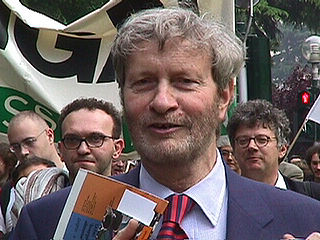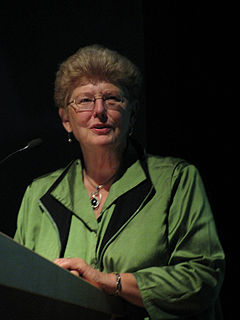A Quote by Harold E. Varmus
In general, all cancers have been traditionally characterized by the way they appear under the microscope and the organs in which they arise.
Related Quotes
There's one uneasy borderline between what is external and what is internal, and this borderline is defined exactly by the sense organs and the skin and the introduction of external things within my own body. Consciousness is altered by physical events and physical objects, which impinge upon my sense organs, or which I introduce into my body. Now the name traditionally given to external objects or processes which change you internally is sacrament. Sacraments are the visible and tangible techniques for bringing you close to your own divinity.
Tradition is the transmitting of linguistic messages that constitute the horizon within which Dasein is thrown as a historically determined project: and tradition derives its importance from the fact that Being, as a horizon of disclosure in which things appear, can arise only as a trace of past words or as an announcement that has been handed down to us.
It is in this mutual dependence of the functions and the aid which they reciprocally lend one another that are founded the laws which determine the relations of their organs and which possess a necessity equal to that of metaphysical or mathematical laws, since it is evident that the seemly harmony between organs which interact is a necessary condition of existence of the creature to which they belong and that if one of these functions were modified in a manner incompatible with the modifications of the others the creature could no longer continue to exist.
The human mind prefers something which it can recognize to something for which it has no name, and, whereas thousands of persons carry field glasses to bring horses, ships, or steeples close to them, only a few carry even the simplest pocket microscope. Yet a small microscope will reveal wonders a thousand times more thrilling than anything which Alice saw behind the looking-glass.
Deep attention, the cognitive style traditionally associated with the humanities, is characterized by concentrating on a single object for long periods (say, a novel by Dickens), ignoring outside stimuli while so engaged, preferring a single information stream, and having a high tolerance for long focus times. Hyper attention is characterized by switching focus rapidly among different tasks, preferring multiple information streams, seeking a high level of stimulation, and having a low tolerance for boredom.


































